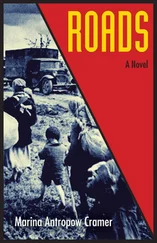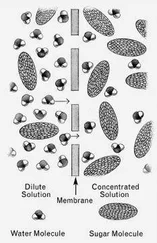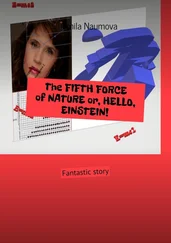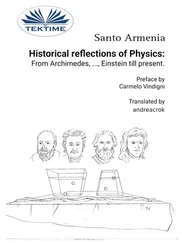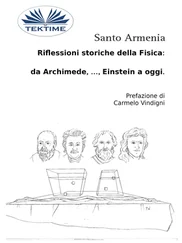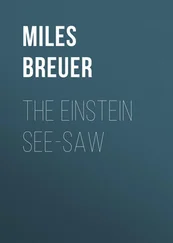Alice nodded. The message that George’s work was more important than the wishes of his ex-wife came in loud and clear. “As a writer, I’ve been around scientists enough to know that their work requires a large amount of time and effort. Most of them seem to be workaholics who love what they’re doing. Didn’t she understand that?”
“Not really,” said George. “After I landed the faculty job in Seattle, she developed the Oxfordesque vision of me as a university don, tutoring students, attending faculty assemblies, arguing with colleagues over fine points of philosophy, and writing an occasional monograph containing my great thoughts. She simply never understood how things work in experimental particle physics. She had never imagined, she told me once, that such a large group of people would choose to work so hard, for so long, and spend so much money to accomplish so little.”
Alice grimaced. “Did you have any children?” she asked.
“No,” George answered. “We held off at first because our finances were very tight. Then in Geneva we discovered that Grace had, as they say, a problem. We could have used one of those microsurgical fertilization techniques, but about then we began having disagreements about my working hours, so it seemed prudent to wait. I suppose we avoided many complications, as it turned out.” He stared bleakly at the table for a moment and then looked up at her. “How about you, Alice? Married? Or otherwise involved?”
“I’m a widow, actually,” she said, feeling suddenly trapped into unfolding a story she would rather keep packed away. “Steve and I were married for six years. Happily married, I guess you could say. We met as students at Florida State in 1992 while we were both working on Bill Clinton’s unsuccessful presidential campaign. After graduation, I got a job as a reporter with the Tallahassee Democrat and supported both of us while he was finishing law school. When Steve graduated, he got a job with a good law firm in Tallahassee, which is the state capital. Two good jobs, many good friends, a wonderful life, a nice house. We were active in politics, and Steve was planning to run for the state legislature when the time was right. We were both too busy to contemplate dealing with children. And then he was killed in a mountain-climbing accident.” She paused and swallowed.
George said nothing, so finally she continued. “Steve had grown up in Montana, and he was a climbing nut. Once or twice a year we’d go off to Switzerland or Colorado or Alaska to climb mountains. I learned enough to keep up with him, most of the time. It was good healthy exercise, and it kept us in top condition. We were at Saas-Fee when I suddenly came down with the flu. Steve decided to take the opportunity when I wasn’t along to do something more challenging. He hired a Swiss guide and set out to climb the Eiger. There’d been an unusually heavy snowfall that winter, and it was warming up. And, to get to the point, there was an avalanche where there had never been one before. The guide came back, but Steve didn’t. It them took two days to find his body.”
George said nothing, but he squeezed her hand.
“The insurance money and the sale of our house in Tallahassee provided me with enough financial independence so I could do freelance writing instead of working for the newspaper.
I’ve been a full-time writer ever since.” She hadn’t intended to talk so much about it, but George didn’t seem to know what to say. So she had babbled on, hoping that her anger at Steve for getting himself killed hadn’t been too obvious.
She glanced out the window. The sun was low and red over the Texas prairie. “I’m glad it’s flat here,” she said finally. “I don’t much like to look at mountains anymore.”
George took another sip from his longneck beer bottle and swallowed. Twice. “I’m really sorry, Alice,” he said at last. “I’d forgotten that someone could be so charming and so vibrantly alive and still have deep sorrows beneath the surface.”
She wiped her eye at the inside corner. “I think it’s time to change the subject,” she said in a low voice. Talking about Steve made her recall the pit of depression that had trapped her for so long, that she had struggled so hard to climb out of. “I’d like to see your experiment when it’s actually running and collecting data. So far, all I’ve seen are the preparations.”
George stroked his beard. “They’re almost finished with the present machine development cycle,” he said. “We expect to have beam available sometime tomorrow night. My next shift at LEM starts at 10 p.m. and ends at 6 a.m. How do you feel about staying up all night?”
“Actually, it sounds great,” she said, feeling her spirits lift. “I’m rather a night person. When I’m working on a long piece of writing, I tend to write all night and sleep all day. In Tallahassee it’s quieter and cooler at night, and the work goes better.”
“Okay,” said George. “You’re on for the Tuesday night shift. I hope you don’t bore easily. Experiment runs are usually structured as many hours of routine checking when nothing much is happening, punctuated by an occasional fifteen minutes of panic and confusion when something goes wrong.”
Alice smiled. “Perhaps I’ll be lucky, and disaster will strike while I’m there.”
June 8, 2004 July 5, 1989
Building the Super Collider would be a Super Mistake.
— CONGRESSMAN DENNIS ECKART (D.-OHIO)
So the question becomes: is the SSC the kind of good science we most need right now?
—CONGRESSMAN SHERWOOD BOEHLERT (R.-NEW YORK)
September 1,1989
Mars is essentially in the same orbit [as Earth]. Mars is somewhat the same distance from the sun, which is very important. We nave seen pictures where there are canals, we believe, and water, if there is water, there is oxygen. if oxygen, that means we can breathe.
— VICE PRESIDENT DAN QUAYLE
September 8,1989
What a waste it is to lose one’s mind — or not to have a mind. How true that is.
— VICE PRESIDENT DAN QUAYLE
WOLFGANG WAS SITTING AT THE CONSOLE OF THE SCANNING Tunneling Microscope when George walked in. “Sorry I’m late,” he said. “The trigger group meeting ran way overtime.” George felt guilty about being late. Wolfgang must have been here for almost an hour and had the STM in full operation. The display showed what looked like the gate region of a failed field effect transistor.
George walked forward and peered through the thick glass window of the instrument’s sample holder. The silicon slab they had brought was clipped to a complicated positioning mechanism. The interior was close-packed with unfamiliar shapes, but George imagined that he could make out the needlepoint probe of the STM as it scanned a few atomic diameters above the surface of the silicon, measuring the electrical conductivity of the tip-to-surface gap on an atom-by-atom scale. The display screen showed a colorful contour map depicting a lumpy mountainlike terrain. “How’s it going, Wolfgang?” he asked.
“Schlecht,” said the other man. “It’s clear that your FET gate pinched off destructively for some reason, but its geometry is not significantly different from its neighbors, and also no different from the ones we used in the ATLAS detector.” He gestured at the colorful display.
George looked at the structures on the screen. The p-type and n-type regions of the silicon differed in elevation by a few atomic layers, enough to show up clearly on the STM. The gate region, which should have had an hourglass shape, was instead two separated clumps with no connection between them. Around the region where the connection channel should have been George noticed several clusters of white dots. “What are these?” he asked.
Читать дальше

